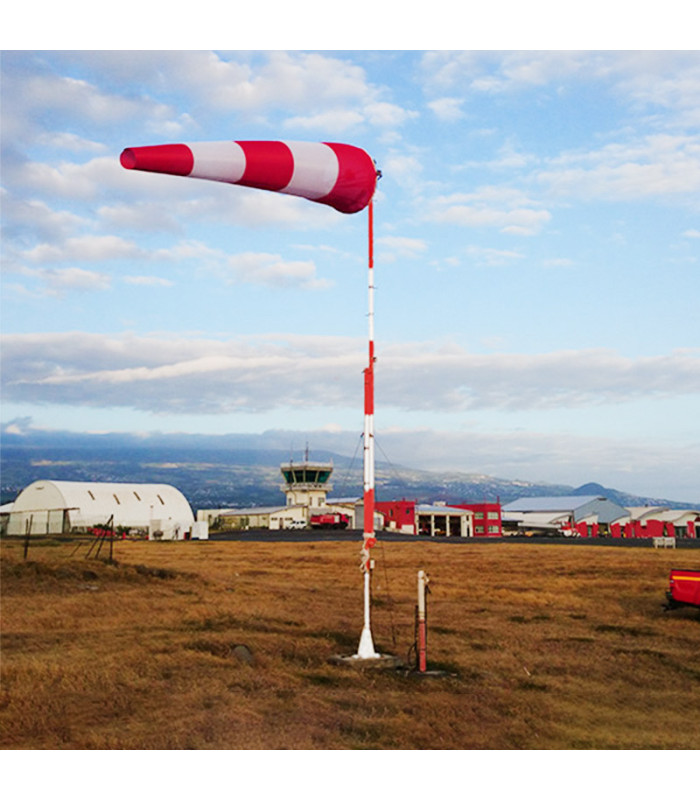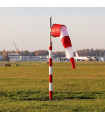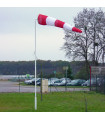STNA/OACI Approved Aviation Windsock Mast
The STNA and OACI approved masts are designed to meet specific safety and visibility standards for aeronautical environments, such as airports. They allow the installation of a windsock at their top to indicate wind force and direction.
Height (m): 7.40
Color: Red and White
Tilting: Yes
Wind vane diameter: 60 (helipad) / 100 (airport)
Certification: CE EN60947-1 CEI60364, NF C15-100 2014 / 35 / EU • OACI Standard • ISO 9001 Quality; 2008
A Custom STNA and OACI Certified Mast
The STNA and OACI approved mast comes with a wind vane diameter of Ø60 for helipads or Ø100 for airports. Other diameters (Ø50 and Ø90) are available upon request. Additionally, an optional internal lighting for the windsock can be provided to ensure visibility at night. An obstacle beacon can also be useful to signal the mast's height and presence.
What is an STNA/OACI Windsock Mast?
STNA (Technical Service of Air Navigation) and OACI (International Civil Aviation Organization) certified masts are designed to meet specific safety and visibility standards in aeronautical environments. Here are their main functions:
- Aviation Safety: These masts are often used to support aeronautical navigation equipment such as antennas, marker lights, windsocks, or other devices necessary for the proper operation of airports and airways. Their design adheres to international standards to ensure they do not pose a hazard to aircraft.
- Visibility and Signaling: They are equipped with markings and lighting systems meeting OACI requirements to be clearly visible to pilots, both day and night. This often includes internal lighting or top mast markings that indicate the presence of the obstacle.
- Durability and Resilience: Certified masts must withstand extreme weather conditions and challenging environments to ensure continuous reliability without excessive maintenance.
- Interoperability: By following standards set by organizations such as OACI, these masts can be used in a standardized manner across different regions and countries, facilitating international operations and maintenance.
Certification by entities like STNA and OACI ensures that masts used in aeronautical contexts meet strict criteria for safety and operational efficiency.
Mandatory Installation of STNA-Certified Windsocks in Aeronautical Infrastructure
STNA masts for windsocks are crucial equipment within aeronautical infrastructure such as airports, aerodromes, and heliports. Their installation is mandatory in these areas to ensure optimal air safety. These masts must be placed in open spaces for maximum visibility, allowing easy identification by airplane and helicopter pilots, day or night. Equipped with LED lighting systems, they ensure that the windsocks they support are visible at all times. Their presence is especially vital during takeoff and landing phases, where they play a critical role in providing pilots with precise wind direction information.












